The Maker of Big Ben
Our Legacy
Established in 1814, Dent London earned an unparalleled reputation for the accuracy of their timepieces, earning the patronage of monarchs, famed explorers, and some very famous public commissions.
Established in 1814, Dent London earned an unparalleled reputation for the accuracy of their timepieces, earning the patronage of monarchs, famed explorers, and some very famous public commissions.
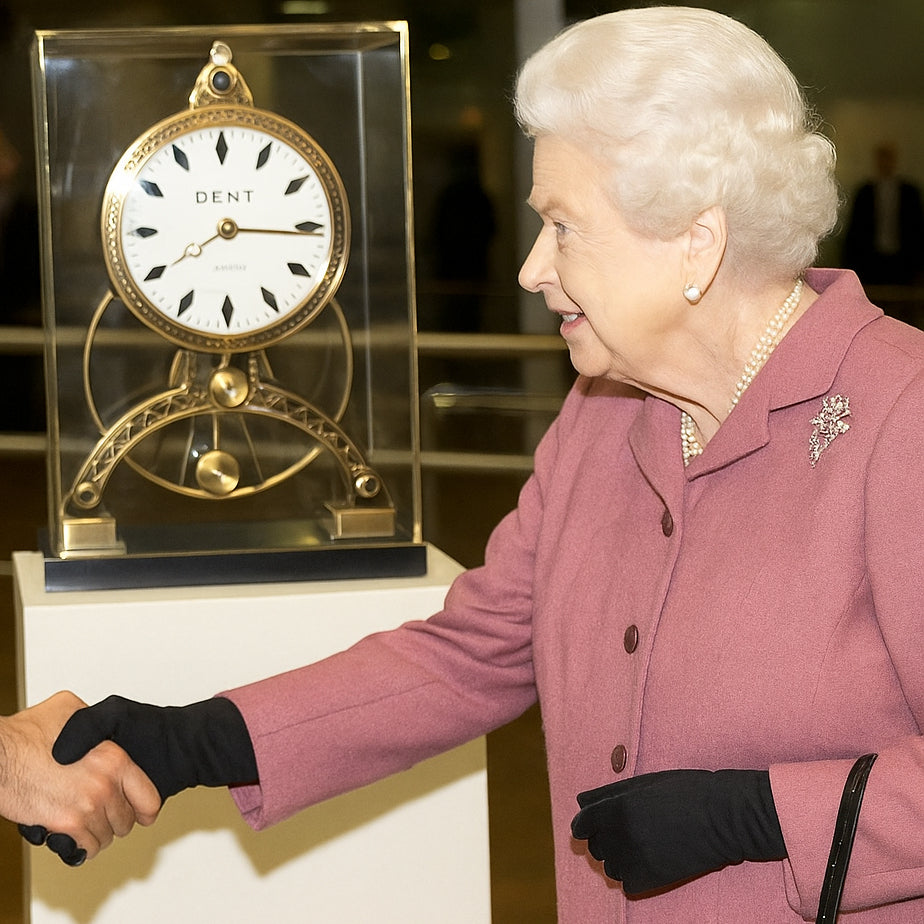
For over two centuries, Dent has defined British timekeeping — from crafting Big Ben to creating precision instruments for explorers. Today, we honour that legacy with timepieces that unite heritage and innovation.
Our watches combine British design with Swiss precision, crafted from the finest materials and finished to exacting standards. Every detail reflects two hundred years of horological mastery.
Our watches combine British design with Swiss precision, crafted from the finest materials and finished to exacting standards. Every detail reflects two hundred years of horological mastery.
For over three centuries, E. J. Dent & Co. has been at the heart of British precision in watch and clock making.
Founded in 1814 by Edward J. Dent, E. J. Dent & Co. quickly became a beacon of the Victorian era's passion for technological advances, crafting precision chronometers that navigated the Royal Navy and guided daring explorers across the globe.
During a period marked by remarkable technological feats, such as John Harrison's groundbreaking longitude solution in 1764, Britain affirmed its status as a horological powerhouse. Dent played a pivotal role in this legacy, creating the Standard Clock at the Royal Observatory, Greenwich, which set the standard for "Greenwich Mean Time" (GMT), the foundation of timekeeping in the Empire until 1946.
Among Dent's crowning achievements is the world-renowned Great Clock of the Houses of Parliament, affectionately known as Big Ben, cementing its place in history as a symbol of precision and innovation.
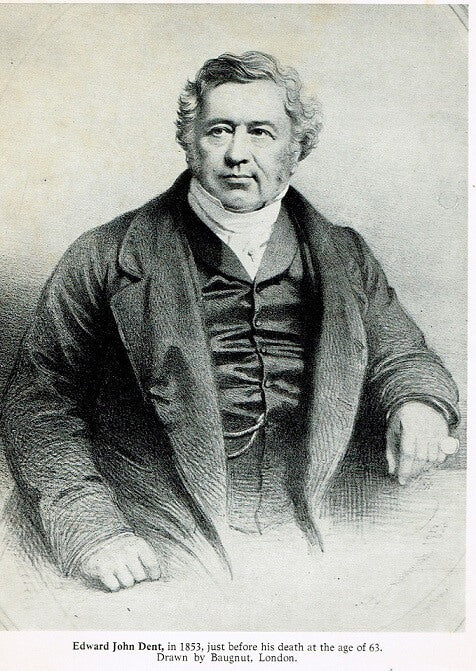
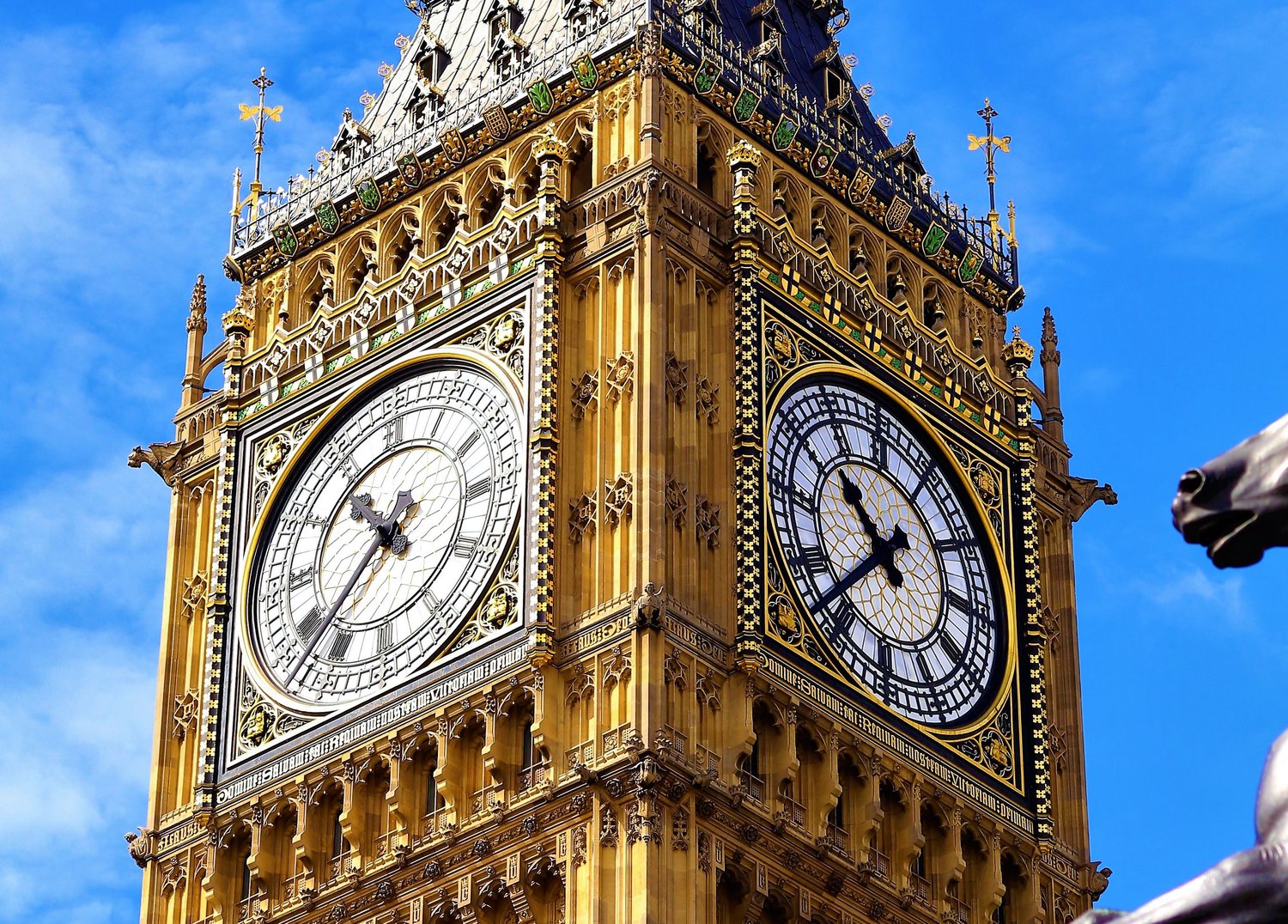
At the pinnacle of Victorian innovation, the Great International Exhibition of 1851 showcased a magnificent Dent turret clock, which clinched a Council Medal for its superior design and craftsmanship.
This celebrated timepiece, initially dazzling attendees at Crystal Palace, was later reassembled at King’s Cross Station, marking a testament to Dent's engineering marvels.
However, it is the Great Clock of the Houses of Parliament, affectionately known as "Big Ben," that has truly engraved Dent's name into the heart of British heritage. In a highly competitive bid in 1852, Dent outshone three esteemed clockmakers to win the contract, awarded by Sir George Airy.
This not only reaffirmed Dent's stellar reputation but also aligned the brand forever with one of London's most iconic landmarks, cementing its legacy in the annals of timekeeping history.
Dent's exceptional contributions to timekeeping, especially at the Royal Observatory, Greenwich, earned high praise from the Royal Astronomer, Sir George Airy.
A Standard Clock by Dent wasn't just any clock; it was a benchmark of reliability and quality, serving as the reference point for all others.
In 1814, Dent set the gold standard by crafting the first Standard Astronomical Clock for the Admiralty. This paved the way for Dent to supply Standard Clocks globally, reaching as far as the USA and Japan throughout the 19th century.
A significant milestone came in 1871 when Dent was honored with creating the Standard Clock for the Royal Observatory, Greenwich. This clock, the cornerstone of "Greenwich Mean Time" (GMT), became the reference for all timekeeping in the Empire.
Additionally, Dent is responsible for the clock at St. Pancras International Station in London as well as crafting a secondary Standard Clock, pivotal for initiating the emission of the 6 'pips' broadcasted by the BBC World Service starting in 1924, marking a momentous contribution to global time signalling.

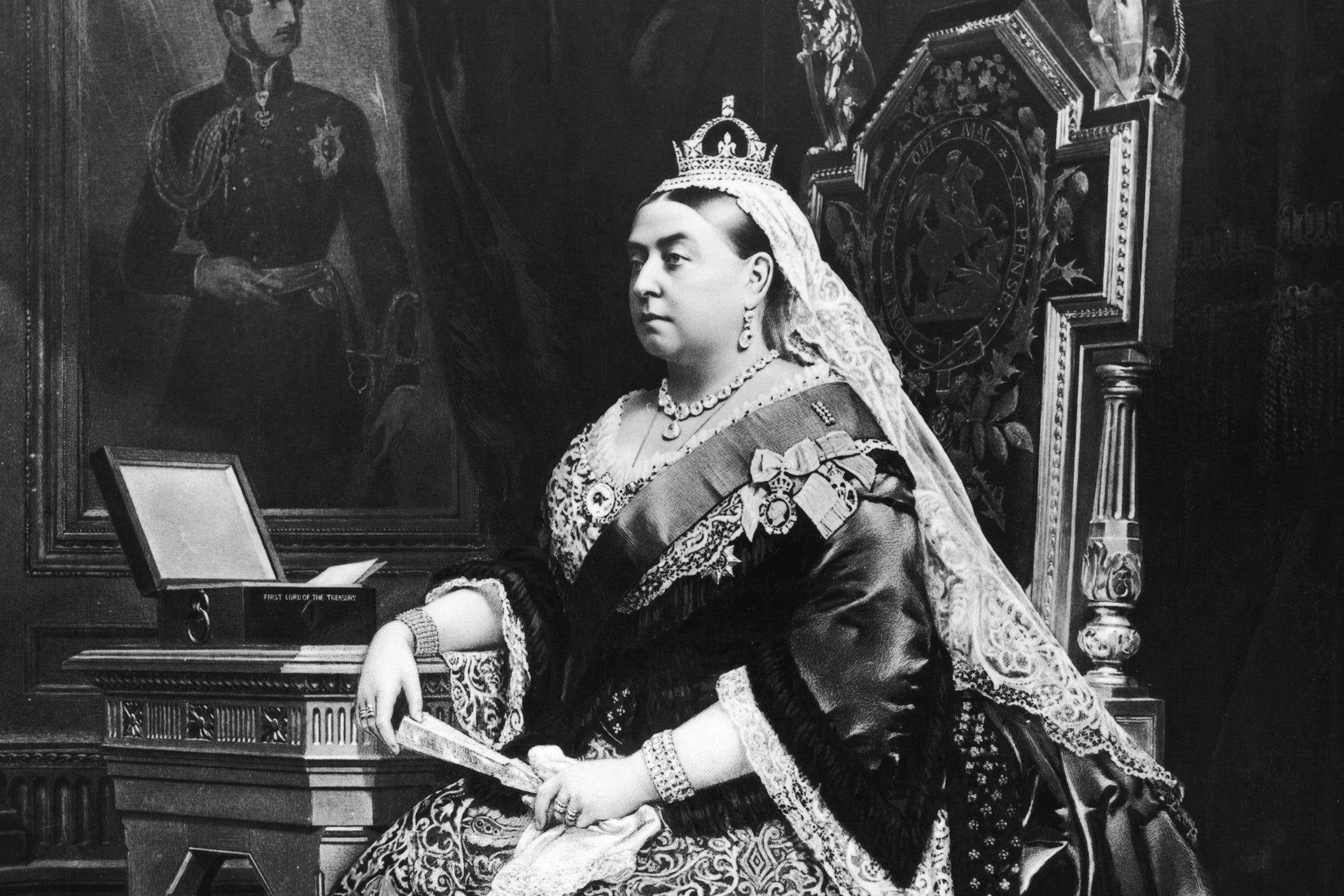
Domestic Clocks and Watches
Dent's mastery in crafting exquisite domestic clocks and watches not only captivated attention but also earned the prestigious Royal Warrant as the official timekeeper for Queen Victoria and HRH Albert, Prince of Wales, in 1841.
This mark of royal approval was not only a testament to their unparalleled craftsmanship but also a tradition that continued through to the reign of George V. Beyond British shores, Dent's renown reached the courts of Russia and Japan, where Tsar Alexander III, Tsar Nicolas II, and Emperor Meiji themselves bestowed royal warrants upon the company, celebrating Dent's global eminence in horology.
Timekeeping Excellence
E. J. Dent ignited his passion for clock making under the tutelage of his cousin Richard Rippon.
From 1814, he quickly built a stellar reputation for crafting precise chronometers essential for Britain's maritime adventures, trade, and colonial ambitions. His innovation caught the eye early on, earning him the prestigious First Premium Award at the 1829 Greenwich Trials.
Dent's fame escalated as his timepieces became the trusted companions of the era's most iconic explorers. His chronometer no. 633 sailed with Charles Darwin aboard the H.M.S. Beagle in 1831, playing a part in the journey that inspired Darwin’s seminal work, “The Origin of the Species.”
Two decades on, David Livingstone took Dent chronometer no. 1800 on his African expeditions. In 1890, explorer H.M. Stanley lauded Dent's chronometers for their crucial role and reliability during his African expedition, underscoring Dent's contribution to exploration and science.
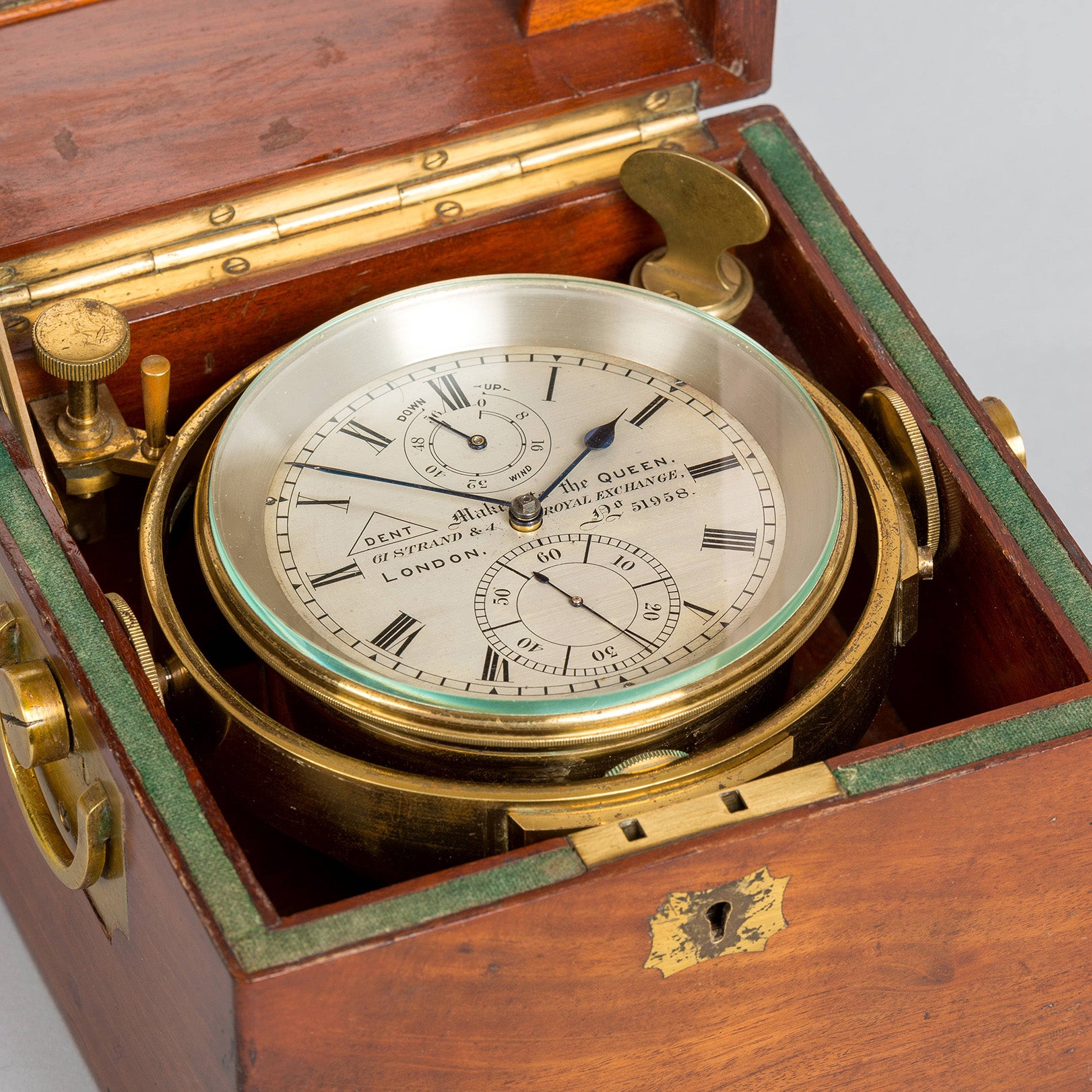
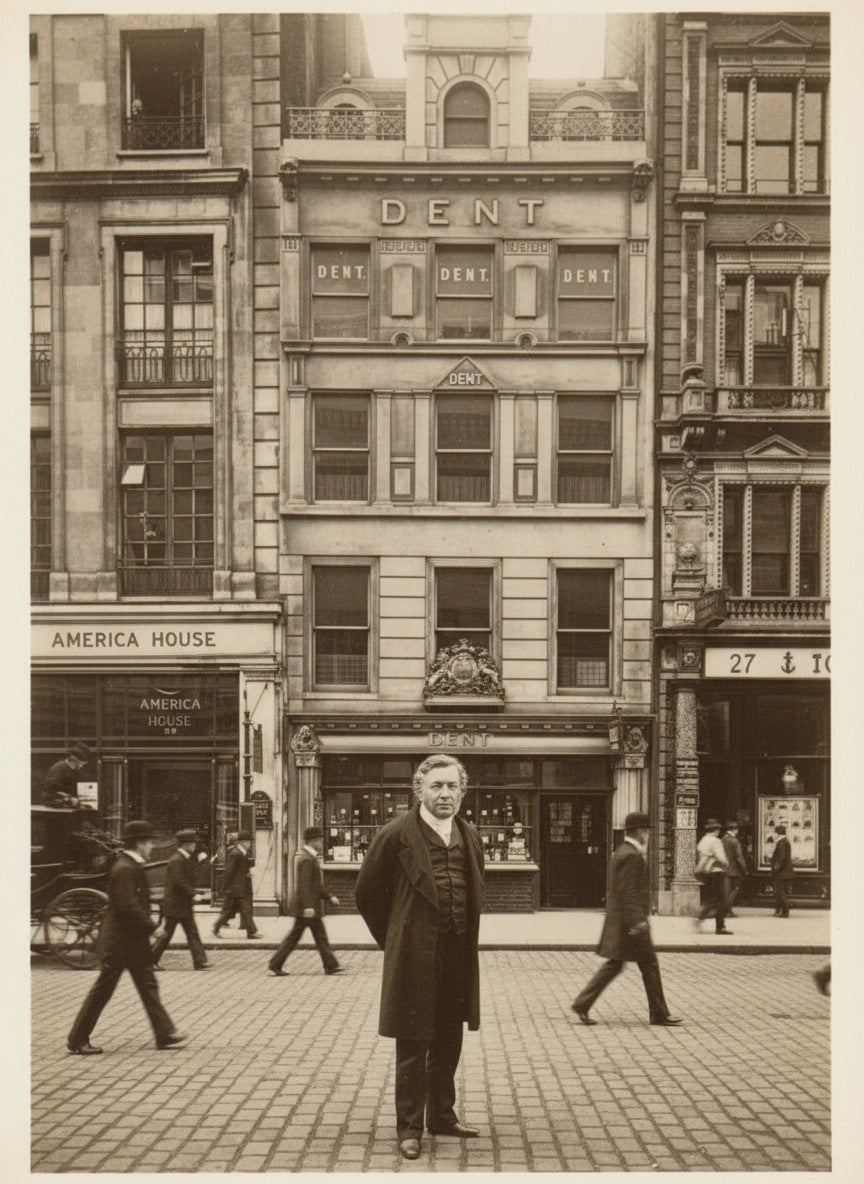
Dent's legacy in horology is marked by numerous patented innovations, from the balance spring to jewel mechanisms, and the pioneering "The Keyless" in 1846.
This was a revolutionary watch that eliminated the need for a winding key by allowing winding and setting via the crown. This invention became a cornerstone in watchmaking history.
To safeguard their reputation against inferior copies, Dent introduced the triangle trademark in 1876, a guarantee of authenticity on all their timepieces thereafter.
Holding Royal Warrants well into the mid-20th century, Dent continued to produce exquisite clocks, maintaining their esteemed position in the world of fine timekeeping.
Founding of Dent London — Edward John Dent established his workshop in London, beginning a 200+ year legacy of precision horology. ↗
Greenwich Trials — Dent chronometer No.114 won First Premium at the Royal Observatory trials. ↗
Commission for Big Ben — Edward John Dent was commissioned to build the Great Clock of Westminster. ↗
Completion of Big Ben — The chimes of Big Ben rang for the first time. ↗
St. Pancras Station Clock — Dent built the monumental station clock. ↗
BBC “pips” broadcast — Official GMT transmitted using Dent’s Master Regulator. ↗
King’s Cross mechanism replacement — Dent electronic movement installed. ↗
Restoration of St. Pancras Clock — Dent restored the station clock. ↗
World record online pocket-watch sale — Dent “Ultra Complication” achieved $832,240. ↗
Marriott partnership (St. Pancras London) — Heritage collaboration and new luxury timepieces. ↗
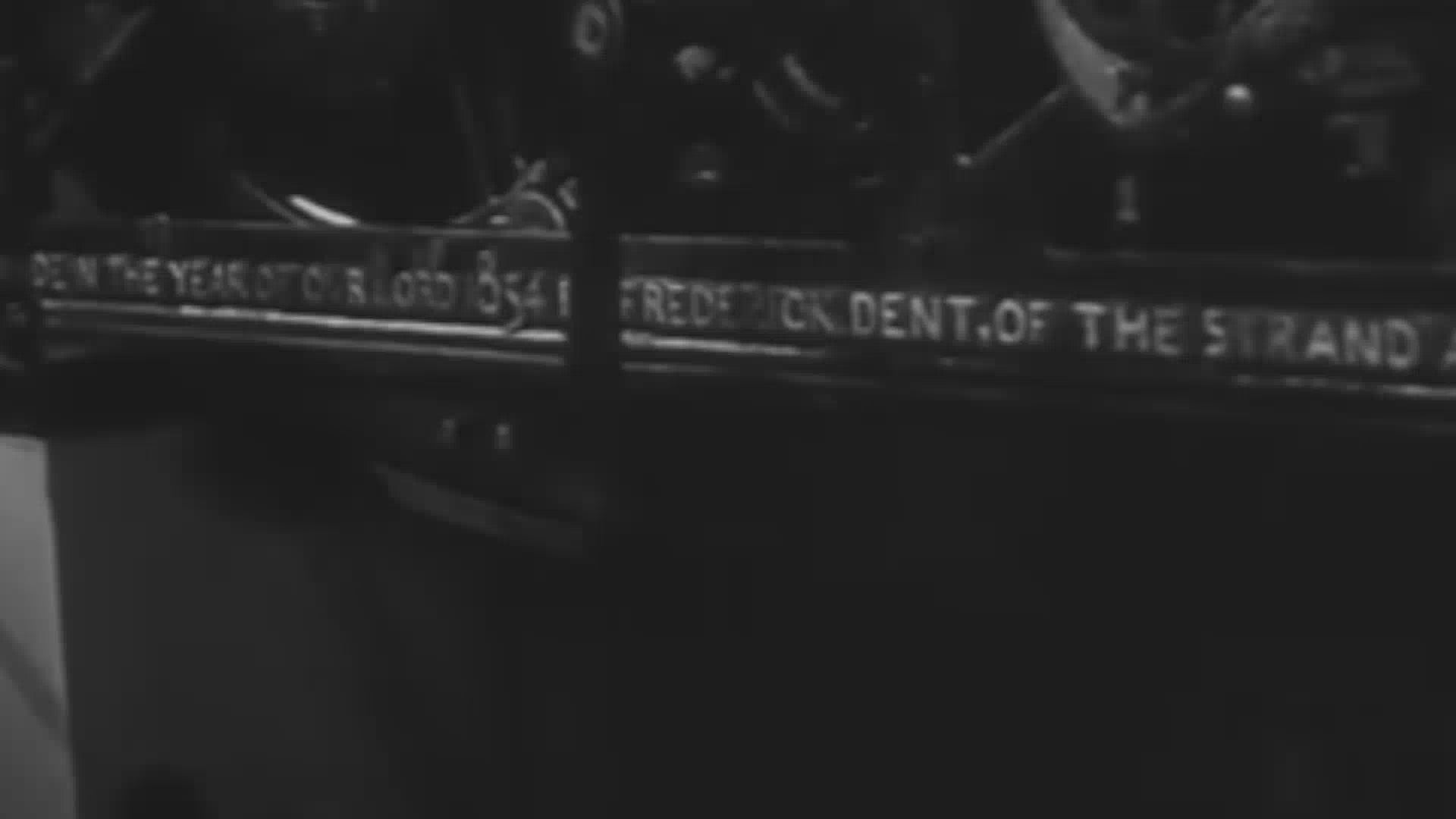
Join our private circle of collectors for exclusive event invitations, first access to new releases, and stories from the clockmaker behind Big Ben.